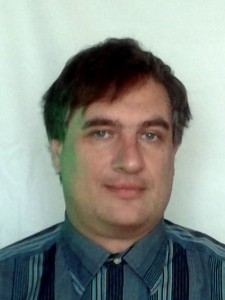We are glad to invite you to a seminar by Prof. Dmitri Papatsenko, titled “Feedback Control of Self-Renewal and Memory of Pluripotent Stem Cells”
Seminar abstract
Embryonic stem cells (ESC) can remain in the pluripotent state and propagate or differentiate towards a certain cell lineage. It remains largely unknown how the ESCs maintain the meta-stable self-renewing pluripotency states and why ESC may eventually commit differentiation.
Based on single cell data and previously published data we have reconstructed pluripotency gene regulatory network (PGRN), and suggested a model for dynamic exchange between two identified pluripotency states in mouse ESCs. The dynamic exchange between the states suggested a mechanism of self-renewal, involving feedback control loops present in the PGRN.
During reprogramming from somatic cells, the resulting induced pluripotent stem cells (iPSC) can “remember” their original source cell type, as well as the reprogramming method or protocol.
Analysis of PGRN at many levels revealed multiple feedback control loops, suggesting that the PGRN architecture may resemble an architecture of a recurrent neural network (RNN). RNN is an artificial network used to model human memory. In the case of ESCs and iPSCs, the RNN-like network architecture may explain memory properties of the cells, emerging from reprogramming studies.
Speaker introduction
 Prof. Papatsenko received his diploma (MS) in Molecular Biology from Moscow State University in 1991 and his PhD from Engelgardt Institute of Molecular Biology, Moscow in 1995.
Prof. Papatsenko received his diploma (MS) in Molecular Biology from Moscow State University in 1991 and his PhD from Engelgardt Institute of Molecular Biology, Moscow in 1995.
In 1996 he moved to The Rockefeller University (New York, USA) to study gene regulation and development in Drosophila. At the Rockefeller University Prof. Papatsenko introduced systems analysis of gene control regions, promoters ad enhancers and proposed a number of models explaining formation of spatial gene expression patterns in early embryo of Drosophila.
In 2004 Prof. Papatsenko accepted position of a scientist at The University of California, Berkeley, where he developed an integrated quantitative model explaining progressive spatial patterning of fly embryo from maternal gradients (determinants) to zygotic stripe expression patterns.
In 2010 Prof. Papatsenko moved to Icahn School of Medicine at Mount Sinai, New York, as an Assistant Professor to study gene networks in embryonic and hematopoietic stem cells. At Mount Sinai he worked on reconstruction of gene networks maintaining pluripotency and quantitative models explaining function of the pluripotency gene networks.
